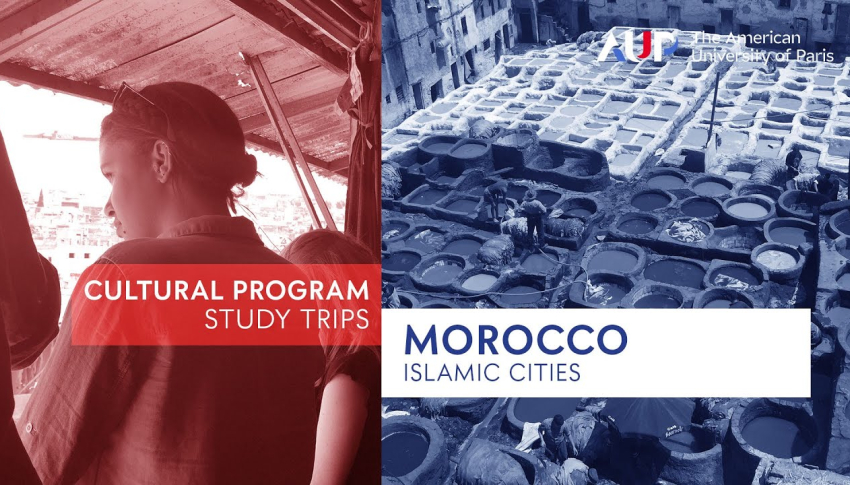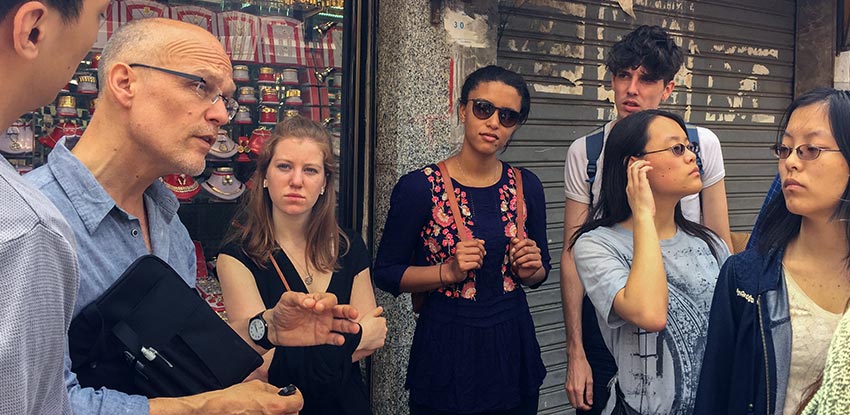- About AUP
- History of AUP
- Mission & Core Values
- Vision and Leadership
- AUP Recognition
- Alumni Success
- Campus Development
- Arts at AUP
- Policies & Guidelines
- Academics
- Undergraduate
- Graduate Programs
- MA in Diplomacy and International Law
- MA in Global Communications
- MSc in Human Rights and Data Science
- MA in International Affairs
- MA in International Affairs, Conflict Resolution, and Civil Society Development
- MSc in International Management
- MSc in Strategic Brand Management
- Find Your Thesis Advisor
- Previous Programs
- Cultural Program
- Faculty
- Summer School
- Research Centers
- The Center for Critical Democracy Studies
- Upcoming Events
- Research Projects
- Fellows’ Publications
- Publishing
- Curriculum
- Community
- Visiting Scholars
- CCDS Highlights
- Atelier de Théorie Politique – Paris
- Critical Theory 101: Future Directions and New Challenges
- Martti Koskenniemi on “The Law of International Society: A Road not Taken”
- Academic Freedom Symposium
- Tocqueville Colloque 2023
- Violent Turns Conference
- Degenerations of Democracy
- DEMOS21 Inaugural Event
- What Demos for the 21st Century?
- The Paris Centennial Conference
- Justice Stephen Breyer
- Civic Jazz - The Launch of the Center
- Past Events
- FR
- The Center for Writers and Translators
- The George and Irina Schaeffer Center for the Study of Genocide, Human Rights and Conflict Prevention
- The Joy and Edward Frieman Environmental Science Center
- The Center for Media, Communication & Global Change
- The Center for Critical Democracy Studies
- Departments
- Academic Resources
- Academic Affairs
- Academic Calendar
- Academic Resource Center
- Library
- Registrar's Office
- Teaching and Learning Center
- Employer Network
- Accessibility & Accommodation Services
- AI@AUP: A Campus-Level Initiative
- Quai D'Orsay Learning Commons
- Paris as Classroom
- ACE Center
- Admissions
- Student Life
- Campus
- Student Leadership & Involvement
- Paris
- Support Services
- Student Development Help Desk
- Student Accounting Services
- Student Immigration Services
- Student Grievance Procedure
- Diversity and Inclusion
- Health & Well-being
- Digital Student Handbook
- News
- Events
- AUP Giving
- Housing Offer for 2025-2026
- IT Services
- Alumni
- About AUP
- History of AUP
- Mission & Core Values
- Vision and Leadership
- AUP Recognition
- Alumni Success
- Campus Development
- Arts at AUP
- Policies & Guidelines
- Academics
- Undergraduate
- Graduate Programs
- MA in Diplomacy and International Law
- MA in Global Communications
- MSc in Human Rights and Data Science
- MA in International Affairs
- MA in International Affairs, Conflict Resolution, and Civil Society Development
- MSc in International Management
- MSc in Strategic Brand Management
- Find Your Thesis Advisor
- Previous Programs
- Cultural Program
- Faculty
- Summer School
- Research Centers
- The Center for Critical Democracy Studies
- Upcoming Events
- Research Projects
- Fellows’ Publications
- Publishing
- Curriculum
- Community
- Visiting Scholars
- CCDS Highlights
- Atelier de Théorie Politique – Paris
- Critical Theory 101: Future Directions and New Challenges
- Martti Koskenniemi on “The Law of International Society: A Road not Taken”
- Academic Freedom Symposium
- Tocqueville Colloque 2023
- Violent Turns Conference
- Degenerations of Democracy
- DEMOS21 Inaugural Event
- What Demos for the 21st Century?
- The Paris Centennial Conference
- Justice Stephen Breyer
- Civic Jazz - The Launch of the Center
- Past Events
- FR
- The Center for Writers and Translators
- The George and Irina Schaeffer Center for the Study of Genocide, Human Rights and Conflict Prevention
- The Joy and Edward Frieman Environmental Science Center
- The Center for Media, Communication & Global Change
- The Center for Critical Democracy Studies
- Departments
- Academic Resources
- Academic Affairs
- Academic Calendar
- Academic Resource Center
- Library
- Registrar's Office
- Teaching and Learning Center
- Employer Network
- Accessibility & Accommodation Services
- AI@AUP: A Campus-Level Initiative
- Quai D'Orsay Learning Commons
- Paris as Classroom
- ACE Center
- Admissions
- Student Life
- Campus
- Student Leadership & Involvement
- Paris
- Support Services
- Student Development Help Desk
- Student Accounting Services
- Student Immigration Services
- Student Grievance Procedure
- Diversity and Inclusion
- Health & Well-being
- Digital Student Handbook
- News
- Events
- AUP Giving
- Housing Offer for 2025-2026
- IT Services
- Alumni
Related Links
Study Trip
Fez, Morocco
Architecture and Urban Culture
Founded in 808, Fez is often called "the best preserved medieval city" in North Africa. Held to be Morocco's spiritual capital, it functions as both a magnet for pilgrims from sub-Saharan Africa and a major draw for tourists in search of something cultural. Over the course of the trip, as you experience a type of city with which many remain unfamiliar, your learning experience will encompass the challenges of travel, how to negotiate cross-cultural encounters, and how to transfer these experiences to text and images.
The course provides training in cross-media platforms and an introduction to the workings of cultural and social life in an unusual and complex historic city.
While discovering Islamic architecture and design and their roles in Fez's public identity, you will also be examining urban renewal and communications within a heritage city that is located in a developing country. This will be especially relevant within the context of the Fez Sacred Music Festival, which has, during the last 18 years, changed the image of Fez both in Morocco and abroad, and helped many reevaluate the roles of religion and spirituality in developing global civil societies.
You will also produce blog entries about the Fez forum, where public intellectuals work for world peace and a better global understanding of the Islamic tradition. As the course gives you more insight into the many aspects involved in working within an Arabic and Muslim context, you will develop practical projects and skills for communications, including video and blog production, communication campaigns to local populations, and creating textual and visual content that can be accessed by an international (namely, Anglophone) audience.
With training in cross-media platforms and an introduction to the workings of cultural and social life in this unusual and historic city, you will attain a more profound grasp of the relationship between media, religion, and globalization. You will also be made aware of the difficulties of capturing quality audio-visual footage of live events and will learn how to improvise and develop socio-cultural technological solutions in the complex environment of Morocco.
AUP has been bringing its students to this city and music event for years and will continue to foster this positive and pro-active relationship with the players involved.
Related
-
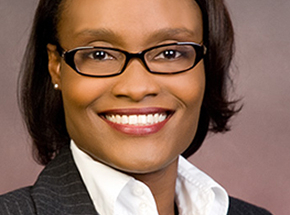
Jacqueline Routier ’94
Alumna
Read MoreJacqueline Routier ’94
Alumna
Marketing is fundamentally about understanding people.
-
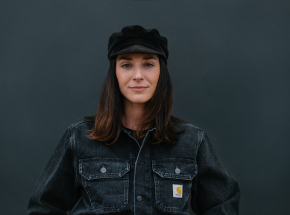
Jessica Farmer ’10
Alumna
Read MoreJessica Farmer ’10
Alumna
My time spent at AUP changed my perspective on what was possible in life.
-
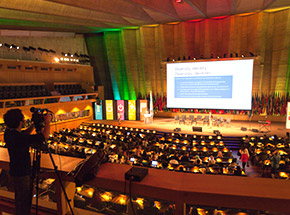
UNESCO Youth Forum
Student Work
Read MoreUNESCO Youth Forum
Student Work
The Peacock Plume was selected by UNESCO to step in as the official source of news for the 9th Youth Forum in Paris.

